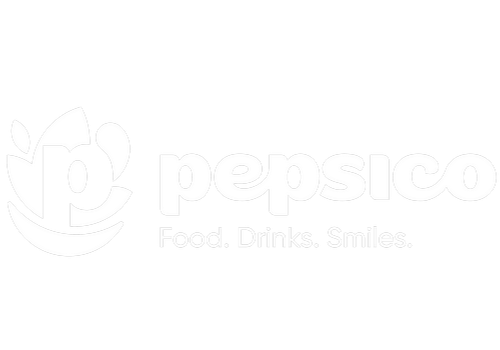25 March 2021 – Europe has returned to a ‘buyer-friendly’ environment, after the COVID-19 pandemic created more risk-averse attitudes. As a result, CMS’ latest annual M&A study identified significant increase in liability caps, longer limitation periods and fewer locked box deals.
The multi-year analysis of the key legal provisions within M&A agreements is the most comprehensive of its kind and is based on a proprietary database comprising more than 5,000 deals.
The study reveals that the primary deal driver for transactions continues to be buyers entering a new market (45%), a marginal decrease on 2019 (46%). Almost a third (31%) of all deals were either the acquisition of know-how or acqui-hire transactions, whilst 22% of deals were the acquisition of a competitor.
Louise Wallace, Head of the CMS Corporate/M&A Group, said: “It comes as no surprise that the first half of last year was difficult for dealmakers, with more delays and renegotiation of terms. But it was perhaps not as gloomy as many feared – we saw a strong recovery towards the end of 2020 and many corporates have confidently adapted their processes to the continued uncertainty and early shoots of ‘new normal’.
“The strength of equity capital markets and the resilience of private equity, with trillions of dry powder, indicates there should be an increase in transaction volumes – all of which makes us hopeful about the future of deal activity in Europe.”
Stefan Brunnschweiler, Head of the CMS Corporate/M&A Group, said: “Deal volumes aside, the dynamics of deal terms playing out should be watched closely. Up until 2020, Europe has been regarded as favouring the seller. This year, we are seeing far more ‘buyer-friendly’ positions – a similar risk allocation to across the pond in the US.”
Signals of more ‘buyer-friendly’ trends include:
- Longer limitation periods – there was an increase in limitation periods of 24 months or more (23% of deals – up 4% from 2019)
- Increase in liability caps – the level of liability caps applying to transactions increased significantly in 2020. There were fewer deals where the cap was less than 50% of the purchase price – down to 49% from highs of 60% in 2017 – and we saw more deals where the liability cap was equal to the purchase price
- Use of locked box transactions – slight decrease in non-PPA deals (51% in 2020 vs 56% in 2019, although the overall upward trend remains
- De minimis and basket provisions are the market norm – applying in majority of transactions (74% and 68% respectively vs 73% and 66% in 2019)
Other key findings include:
- Steady use of Warranty & Indemnity (W&I) insurance – popularity of W&I insurance dropped off in 2020 by 2% (down to 17%), though it was still used in almost half of transactions over EUR 100m
- Gradual decline of purchase price adjustments (PPAs) – a small decrease in the use of PPAs in M&A agreements (44% compared with 45% for 2019), suggesting parties are seeking more certainty as to the amount of the purchase price when signing transaction documentation
- Earn-outs remain consistent – Despite the anticipaton of more earn-outs due to COVID-19, there was little change albeit at 21% of deals. This is above the average level of the last decade, though still less popular than use in the US
Regional differences
The COVID-19 pandemic has triggered a shift in favour of the buyer in Europe, similar to the US where more ‘buyer-friendly’ positions are common. However, market practice in Europe relating to PPA has remained consistent in the 44-45% range for the past three years. This is a noticeable difference to the US where a PPA features in almost all deals (95%).
The analysis also revealed marked differences in market practice between the European regions:
- The UK used PPAs in 54% of transactions, well ahead of France (36%) and Benelux countries (34%).
- CEE and the Southern European countries have significantly higher liability caps (67% and 76% of transactions respectively had a liability cap of more than 50% of the purchase price), compared to the European average of 43%.
- The take up of W&I insurance cover remains low in France, Benelux, and the Southern European countries - ranging from 5% to 20% - and has dropped off significantly in the UK (from 37% in 2019 to 27% in 2020).
- Locked boxes dropped off significantly in the UK (30% vs 61% in 2019) but not in other European countries.
- There was a large increase in the use of earn-outs in CEE with 20% of transactions compared to 8% in 2019 – more in line with the European average of 21%.
- Limitation periods for warranty claims are much longer in CEE, France and the Southern European countries.
- Arbitration was used as the dispute resolution mechanism in a third (32%) of deals. It was less popular in certain regions (UK, France and Benelux) than others (CEE, German-speaking and Southern European countries).
For more information: https://cms.law/en/int/publication/cms-european-m-a-study-2021
Press contact:
Darina Gordienko
CMS Cameron McKenna Nabarro Olswang
E: darina.gordienko@cms-cmno.com/+38044 3913377
About the Report:
The CMS European M & A Study 2021 (‘the Study’) provides insight into the legal provisions of merger & acquisition (M & A) agreements, makes comparisons across Europe and with the US, and identifies market trends. CMS analysed private M & A agreements relating to both non-listed public and private companies in Europe for the fourteen-year period 2007 – 2020. Of the 5,017 CMS transactions we analysed, 408 relate to 2020 and 3,849 relate to the period 2010 – 2019.
About CMS
Founded in 1999, CMS is an integrated, multi-jurisdictional organisation that offers full-service legal and tax advice. With more than 70 offices in over 40 countries across the world and more than 4,800 lawyers, CMS has long-standing expertise both in advising in its local jurisdictions and across borders.
For more information, please visit cms.law


























